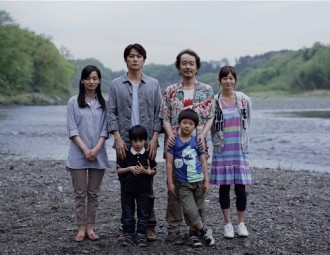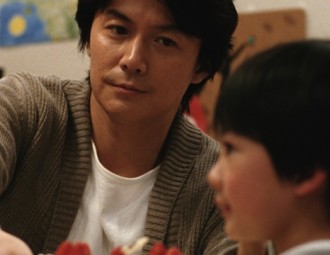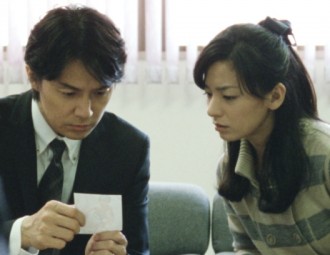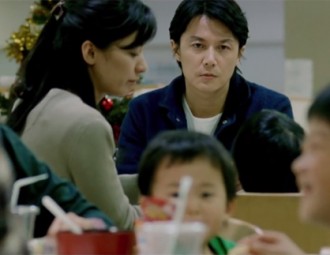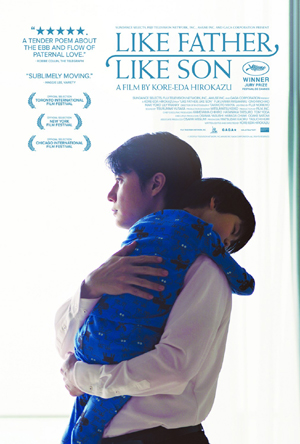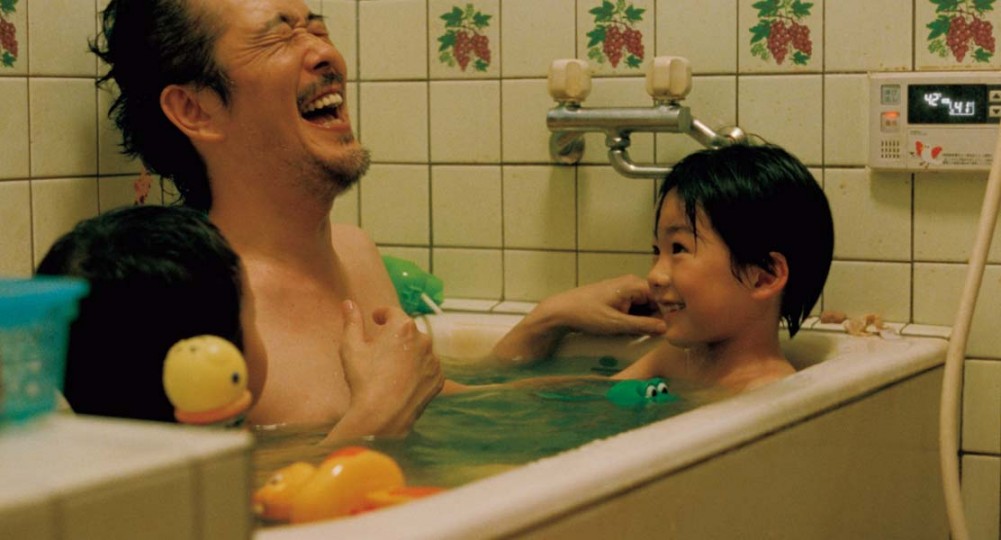
Insightful Father Showcases Heartbreaking Universal Truths
Ryota Nonomiya (Masaharu Fukuyama) and his wife Midori (Machiko Ono) are celebrating the fact their six-year-old son Keita (Keita Ninomiya) has secured a spot in an exclusive primary school. At the same time, they have also learned from the hospital he was born at that a shocking mistake was made, the boy they love not biologically their own.
Working Class parents Yudai (Lily Franky) and Yukari Saiki (Maki Yôko) are in the same boat. Soon, the four parents feel as if they are forced to spend time with one another, getting to know each other’s children grappling as to what should be done next. Ryota, always the one with the plan, always the one who knows what to do, is suddenly faced with impossible choices, realizing he may not have been the loving, self-sacrificing father he always imagined himself to be.
The shocking scenario at the heart of Like Father, Like Son (Soshite chichi ni naru) isn’t what gives them film its miraculous power to mesmerize and entertain. The real strength of Hirokazu Kore-eda’s (After Life, Still Walking) latest drama is that it takes this sensationalistic idea and concept and twists it on its head, looking intimately at parenting and fatherhood in a quietly direct way that’s oftentimes breathlessly simplistic. He paints a portrait of family that’s incredible, showing how love, compassion and togetherness can blossom between parent and child even if biological connections do not exist.
I think the greatest facet of all of this is how universal Kore-eda makes things. While cultural differences are inescapable, Ryota is the kind of person we can all relate to. He’s been conditioned to put work first, that sentiment or compassion is a sign of weakness and that competition, that winning, is all that matters. But when he sees the link between Midori and Keita, when he witnesses how deep their connection is even though biology has sabotaged them all on a very personal level, he begins to reassess how he looks at the world. The extremely successful architect and businessman discovers things about himself and his beliefs he hadn’t dared consider beforehand, all of it made even more concrete when he begins to examine the seemingly happy, close-knit lives Yudai, Yukari and their family are experiencing even though their financial means are nowhere equal his own.
It’s beautiful stuff, Kore-eda examining Ryota’s realizations in exacting detail never flinching or wavering no matter how dark or disturbing some of these understandings become. He allows insight to come at its own pace, in its own way, never force-feeding answers to the audience in ways that feel inelegant or heavy-handed. The director never allows the inherent melodrama to overwhelm the proceedings, and much like he did with his previous efforts, most notably Still Walking, emotions come when needed and are not milked just to earn a few tears.
The way things resolve aren’t entirely satisfying, but I’m not sure there was a way to bring this situation to a close that would be. Much like the situation itself, finding a solution to something as messy as this is close to impossible, and while those at the center seem content it pretty much goes without saying they, along with the audience, are not wholly placated (no matter how it might appear). Things have changed for both families in irreparable ways, and while they find a roadmap to move on with their collective lives it isn’t like seeds have been sown they all will be trying to keep weeds from overwhelming long into the foreseeable future.
But that’s the point, right? Family doesn’t come with a rule book, doesn’t come with easy answers everyone can follow to eternal happiness. Decisions must constantly be made, first by parents then collectively as a familial unit as everyone gets older and children begins to come into their own their own as an idiosyncratic unique personalities. Kore-eda deftly examines the differing paths everyone walks upon with exacting, multifaceted detail, the emotions bursting forth doing so with a striking authenticity that’s consistently magnificent. Like Father, Like Son isn’t just a great film, it’s also an insightful one, families of every shape, color, size, ethnicity and type certain to discover elements of themselves in each and every frame.
Film Rating: 3.5 out of 4


